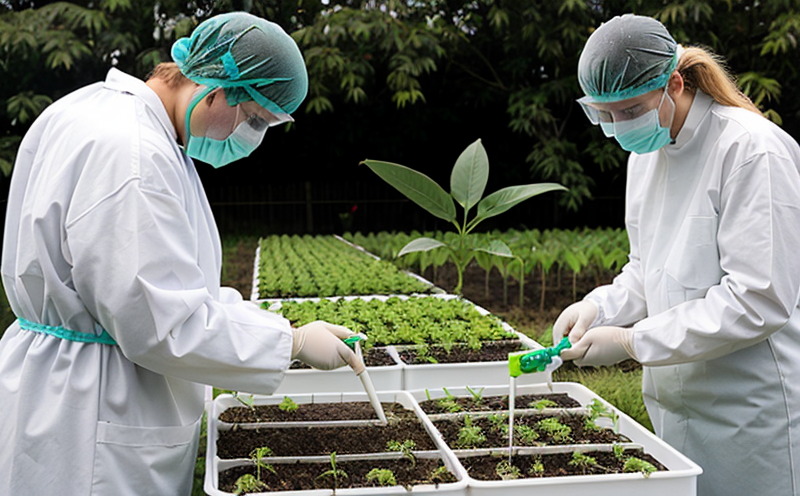Cotton Leaf Curl Virus Testing
The Cotton Leaf Curl Virus (CLCV) is a severe threat to cotton crops in various regions around the world. This virus is primarily transmitted by whitefly vectors and can cause significant yield losses, which directly impact economic stability for farmers and countries dependent on cotton exports.
Accurate diagnosis of CLCV infection is crucial for effective management strategies against this viral disease. Early detection allows for prompt implementation of control measures such as insecticide spraying to reduce the whitefly population before they spread the virus further within a field or region. Additionally, understanding the prevalence and distribution patterns helps in designing more resilient agricultural practices.
Our laboratory offers comprehensive CLCV testing services using advanced molecular biology techniques like real-time PCR (RT-PCR). This method provides high sensitivity and specificity ensuring reliable results even when dealing with low viral loads present during early stages of infection. The process involves collecting leaf samples from suspect plants, extracting DNA/RNA, then amplifying specific sequences associated with the CLCV genome.
The testing procedure ensures strict adherence to international standards including ISO 15143-2 and IEC 60384-14. Compliance officers will find our service particularly useful for ensuring their operations meet regulatory requirements set forth by relevant authorities such as USDA, EU, or other national bodies responsible for plant health.
For research purposes, our laboratory can also provide custom-tailored testing protocols aimed at exploring new detection methods or investigating the molecular mechanisms underlying CLCV pathogenesis. Our team of experienced scientists works closely with clients to ensure all aspects of their projects are addressed effectively and efficiently.
Why It Matters
The global cotton industry faces increasing challenges due to pest outbreaks and disease pressures, particularly those caused by viruses like CLCV. Accurate testing is vital not only for immediate management but also for long-term strategies aimed at enhancing resilience against such threats.
From an economic perspective, minimizing the impact of CLCV can protect farmers' investments while maintaining market competitiveness. By preventing widespread infections early in the growing season, producers can avoid substantial financial losses associated with reduced yields or complete crop failures.
In terms of environmental sustainability, implementing targeted control measures based on precise diagnoses reduces unnecessary use of pesticides and other chemical treatments, thereby lowering overall ecological footprint. Furthermore, identifying resistant varieties through genetic studies facilitated by our laboratory could lead to more sustainable agricultural practices.
Benefits
- Prompt Action: Early detection enables quick response actions which can significantly mitigate the spread of CLCV within a farm or region.
- Economic Stability: Reduced losses due to disease outbreaks contribute directly to improved profitability for farmers and related industries.
- Sustainability: Targeted interventions decrease reliance on broad-spectrum chemicals, promoting more environmentally friendly farming practices.
- Research Opportunities: Custom testing protocols support innovative research into virus-host interactions and novel diagnostic tools.





